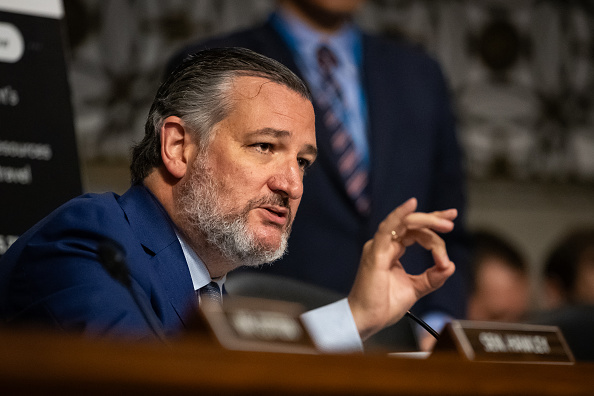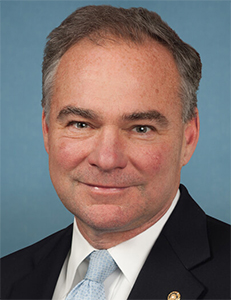WASHINGTON, D.C. – Senator Ted Cruz (R-Texas), a member of the Senate Foreign Relations Committee, commended the recent introduction of the Strengthening Tracking Of Poisonous Tranq Requiring Analyzed National Quantification (STOP TRANQ) Act in the House of Representatives. This legislation, championed by Representatives Vince Fong (R-Calif.-20) and Abigail Spanberger (D-Va.-7), mirrors the bill that Senator Cruz and Senator Tim Kaine (D-Va.) introduced in the Senate earlier this year.
The STOP TRANQ Act mandates that the Department of State incorporate xylazine, commonly known as “tranq,” into its annual International Narcotics Control Strategy Report (INCSR). This report, which assesses global efforts to combat the international drug trade, would now be required to track the spread and impact of this dangerous substance. By doing so, the United States aims to strengthen its response to the evolving international drug trade and the growing domestic crisis fueled by xylazine.

Senator Cruz expressed his support, stating,
“The introduction of the STOP TRANQ Act in the House gives our bill bipartisan, bicameral momentum. The spread of Tranq has reached crisis levels across American communities. Earlier this year, I teamed up with Senator Kaine to push for this legislation, which directs the State Department to monitor the international production and sale of this lethal drug. I’m grateful to Representatives Fong and Spanberger for joining us in this critical, bipartisan effort.”

Senator Kaine added,
“I’m dedicated to addressing the fentanyl crisis, and we must utilize every tool at our disposal. Last year, my bipartisan legislation enhancing the Department of Defense’s role in countering fentanyl trafficking became law. During my recent visit to the southern border, I discussed with law enforcement and international partners from Mexico the need to do more to safeguard Americans. The bipartisan STOP TRANQ Act, which I introduced with Senator Cruz, is a vital step in protecting our communities from the illegal use of xylazine, especially when mixed with fentanyl. I’m pleased to see Representatives Spanberger and Fong introducing this legislation in the House, and I look forward to working together to move this bill forward.”

Representative Fong emphasized the severity of the issue, stating, “Tranq is an emerging threat that must be treated with the utmost seriousness. We need to understand the trafficking patterns of this deadly drug to effectively combat its flow into our country. It’s crucial to confront this crisis head-on and support our law enforcement in their efforts to protect American lives.”

Representative Spanberger, a former federal agent and CIA case officer with experience in narcotics cases, added, “Tranq is killing Americans, including Virginians, at an alarming rate. Our country is currently ill-prepared to handle the surge of xylazine and fentanyl in our communities. Congress must equip our federal, state, and local law enforcement with the tools they need to combat these deadly drugs. As drug overdose deaths increasingly involve xylazine, this bipartisan legislation will help law enforcement crack down on its spread and stop those responsible for these tragedies.”
Background on Tranq
Xylazine, or “tranq,” is a powerful sedative that is increasingly being mixed with fentanyl. The consequences are devastating, causing severe skin damage and contributing to over 3,000 overdose deaths in 2021 alone. The American South has been particularly hard-hit, with a 200% increase in the presence of xylazine from 2020 to 2021—the largest increase in the country. Because xylazine is not an opioid, the life-saving drug Narcan is ineffective in reversing its effects, making fentanyl-xylazine mixtures even more dangerous. Recognizing the severity of the issue, the White House declared fentanyl-mixed xylazine an “emerging threat” and introduced a National Response Plan to tackle the problem.
Last year, Congress passed two significant pieces of legislation to address the crisis. The bipartisan Cruz-Welch Testing, Rapid Analysis, and Narcotic Quality (TRANQ) Research Act was signed into law by President Biden on December 19, 2023. Additionally, portions of the Kaine-Ernst Disrupt Fentanyl Trafficking Act, which calls for increased federal attention to fentanyl trafficking and cooperation with Mexico, became law on December 22, 2023.






